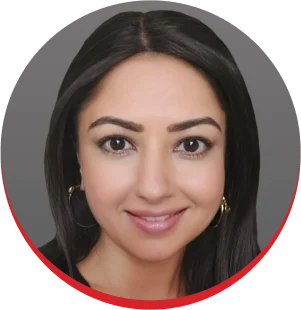In the past few years, we have seen a growing interest from students who are looking beyond the traditional US and UK universities to pursue their undergraduate degrees. With competitive, reputed programmes combined with picturesque cities, the Netherlands is gaining popularity. In 2017-2018, the international student population in the Netherlands was approximately 122,000 from over a hundred countries.
Here is everything you need to know about applying to study in the Netherlands:
Why the Netherlands?
Famous for its inclusive, egalitarian and informal culture, the Netherlands is extremely student-friendly and ranks amongst the happiest countries in the world. While Dutch is the official language, most people also speak English, making it easy to assimilate into the Dutch culture. Apart from this, almost 2,100 programmes across the 77 different higher education institutions are taught in English, giving you various choices. Some Dutch institutions, such as the University of Amsterdam, also feature on university ranking lists. However, keep in mind that while courses such as business and management are taught in English at most institutions, subjects such as dentistry or criminology are taught exclusively in Dutch.
How is the higher education system structured?
In the Netherlands, higher education is split into two main categories–Research Universities and Universities of Applied Sciences. Research Universities, called WO, have courses that are academic in nature, while Universities of Applied Sciences, called (HBO), have courses based on practical education. WO courses take three years to complete, while HBO courses take four years to complete. This is due to the additional year of work experience. In addition, many WOs also have access to university colleges, which are similar to liberal arts colleges in the US. It is also worth noting that Dutch institutions do not offer joint honours degrees. So, if you want to study both economics and philosophy, these would usually be two separate bachelor’s degrees. In some cases, you could complete both in four or five years.
What are the educational requirements?
Similar to the UK application process, in the Netherlands, you must apply to a particular course and meet its individual requirements. For example, Delft University’s Bachelor of Computer Science and Engineering requires students to have studied mathematics at HL. In general, Dutch programmes will require a minimum of 75 percent in Indian boards and 30 points in the IBDP. Since courses are taught in English, you will have to submit IELTS or TOEFL scores. Some programmes, such as the Business Administration at the University of Amsterdam, also require you to appear for an entrance exam, while others may require you to be ‘matched’ with their programme through a series of assignments.
How do I go about the application process?
Most Dutch institutions have deadlines in April, while some highly selective programmes have their deadlines in January. Most institutions use Studielink–a centralised admissions platform–for admissions, while some require you to fill out university-specific forms as well. Through this platform, you can register and submit your application to up to four courses, with the flexibility to change your course at any time before the enrolment deadline. Apart from the generic details, you will be required to submit transcripts, a CV, a motivation letter–similar to a personal statement–and a letter of recommendation. Some programmes may require you to answer some additional questions.
How much does an undergraduate degree cost?
The cost of studying in the Netherlands is quite affordable when compared to other countries such as the US or the UK. Tuition fees at Dutch universities are relatively low, approximately USD 6,500-16,000 per year or INR 4.5-11.5 lakhs. To assist with fees, the Dutch government allows students to work for 16 hours a week during the school term and full-time in the summer. Apart from this, some universities do offer scholarships and grants or you can apply for a government scholarship.
Is there an opportunity to work after my degree?
The Dutch government has policies in place to attract and retain talent. If you want to stay back in the Netherlands, you need to apply for an orientation year. This is a residence permit of one year to find a job or start a business within three years of graduation.
Keep in mind that most institutions in the Netherlands have a ‘binding study advice’, which means that once you are enrolled in the course, you must maintain satisfactory progress in the first year to be able to continue to study your course.
If you find that you have missed US and UK deadlines and still want to study abroad in the fall, the Netherlands is definitely a great option. Alternatively, you can consider applying to Australia, where applications are still open. For more information, get in touch with us.

















